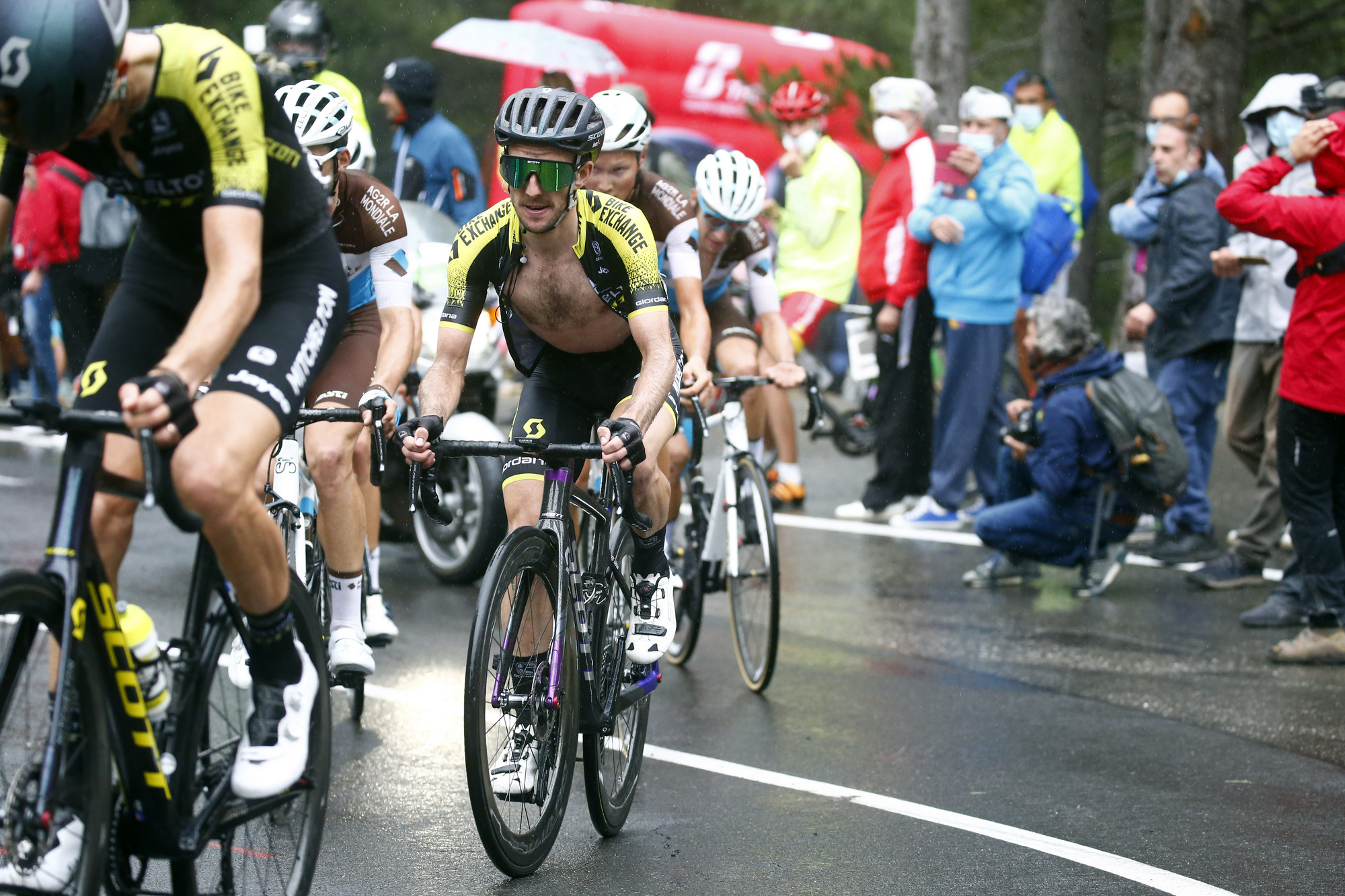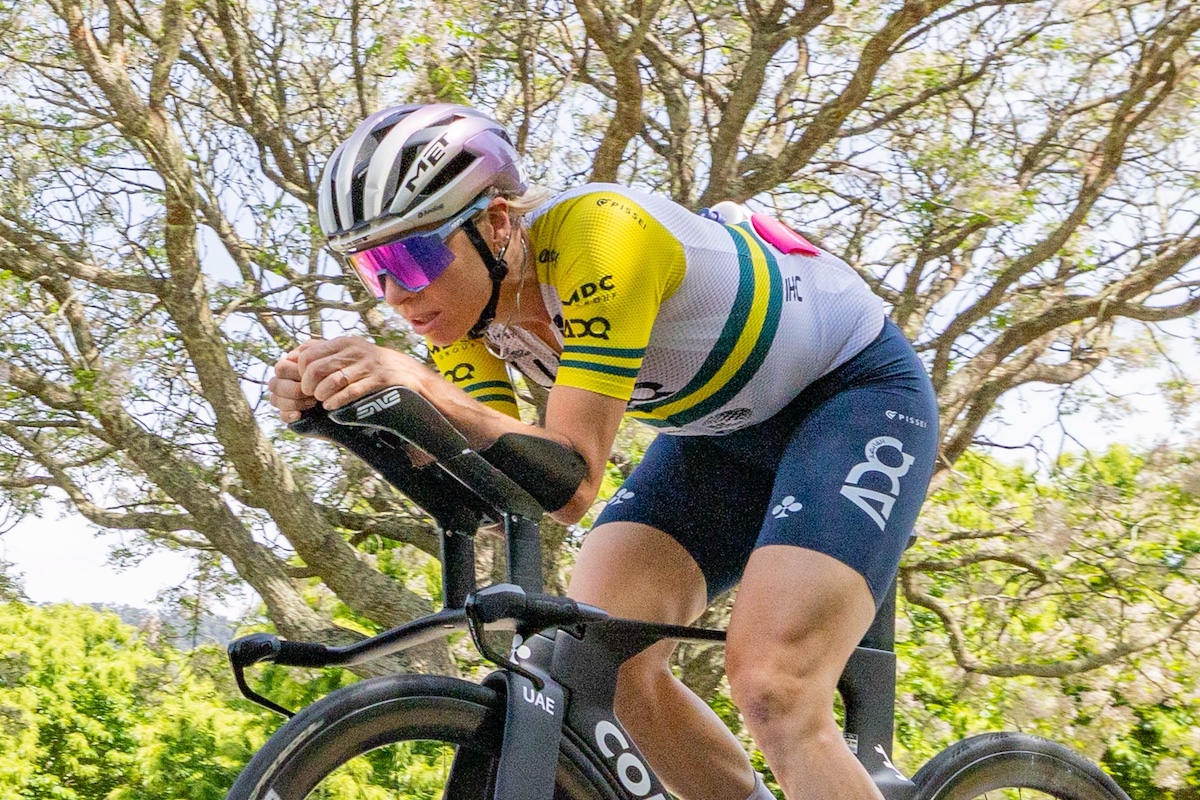Giro d'Italia: Simon Yates' challenge suffers heavy blow at Mount Etna
'We’ll have to come at it from a different angle now' says White

Not for the first time at a Giro d’Italia, Jack Haig was the ferryman guiding Simon Yates towards the shore. In the closing kilometres atop Mount Etna on Monday, Haig cajoled the Briton through the closing kilometres, tempering his pace to match his leader’s ebbing strength, just as he had done at Bardonecchia two years ago.
On that occasion, Yates’ crisis on the Colle delle Finestre came after two, all-action weeks in the maglia rosa, and it had been clearly flagged by his struggles at Pratonevoso the previous day. This time around, Yates’ travails seemed to come as a surprise even to his own Mitchelton-Scott team, who had spent so much of the afternoon setting the pace on the head of the peloton in a bid to tee the Briton up for stage victory.
In hindsight, it was telling that Mitchelton-Scott had already relinquished their position at the front by the time Geraint Thomas (Ineos), a crash victim at the start of the stage, was dropped from the peloton on the false flat that preceded the final haul from Linguaglossa to Piano Provenzana.
Yates remained in a sizeable pack of favourites until midway up the climb, when he began to drift backwards through the group. With a little over 8 kilometres still to race, as leaden drops of rain began to fall ever more persistently, Yates was unceremoniously distanced. Within 1,500m or so, he had lost almost a minute to his direct rivals and he could do little to staunch the bleeding thereafter as he climbed towards the darkening clouds at the summit.
Haig led Yates across the finish line in 31st on the stage, 4:22 down on winner Jonathan Caicedo (EF Pro Cycling) and more than three-and-a-half minutes behind men like Vincenzo Nibali (Trek-Segafredo), Steven Kruijswijk (Jumbo-Visma) and Rafal Majka (Bora-Hansgrohe). In the overall standings, Yates slips to 25th, 3:46 behind new maglia rosa João Almeida (Deceuninck-QuickStep) and almost three minutes down on Nibali.
“We’re one of the favourites for this race and we wanted to win the stage, so we took control to give ourselves a chance to win,” said Mitchelton-Scott directeur sportif Matt White, who admitted that Yates had shown no signs of struggling earlier in the stage.
“The boys did a good job of trying to control the breakaway and we didn’t have any indication at that time that Simon wasn’t on a good day. And then when we did get a bit of an indication, Trek had already sort of taken over. Trek did a job there to maybe put time into Geraint Thomas and push the pace. And when Simon lost time today, it was just about limiting our losses.”
The latest race content, interviews, features, reviews and expert buying guides, direct to your inbox!
A different angle
Yates had initially targeted the 2020 Giro d'Italia with an eye to competing at the Tokyo Olympics, but he maintained his focus on the corsa rosa even after the coronavirus pandemic forced the postponement of the Games and the rearrangement of the cycling calendar.
After losing the pink jersey in such cruel circumstances in 2018 and then enduring such a subdued Giro last year, Yates perhaps felt he had an account to settle with the race, and he arrived in Palermo as one of the principal favourites after an assured overall victory at Tirreno-Adriatico.
Yates underlined that status with a fine display in Saturday’s opening time trial, but his heavy losses on Mount Etna have already relegated him to the role of outsider. His pathway to victory in a Giro of fading October light is faint in the extreme.
“We’ll just be coming at it from a different angle now,” said White. “We were looking at coming at it from the front with a couple of early mountain stages and a good time trial. Now we’re coming from behind.”
It is too soon to say if Yates simply suffered an off-day or if his travails on Mount Etna were evidence of a deeper malaise. His performance here certainly bore a striking resemblance to his muted display in the San Marino time trial a year ago, but White preferred to focus on how the Giro’s recent history has been punctuated by late turnarounds.
“The Giro is always won in the last week,” White said. “It’s always a brutal finish and there’s a long time between now and then. We’ll just reassess, see what’s happened and then take it day by day, as cliché as that is. This race is going to be won in the last week or nine days and we’ll be coming at it from a different angle, from a different position in general classification.”
When Yates lost 38 minutes and the maglia rosa at Bardonecchia in 2018, his lieutenant Haig looked to put some perspective on the day’s events. “There’s another Giro next year,” Haig said then.
This time around, for better or for worse, there is still a Giro this year.

Barry Ryan was Head of Features at Cyclingnews. He has covered professional cycling since 2010, reporting from the Tour de France, Giro d’Italia and events from Argentina to Japan. His writing has appeared in The Independent, Procycling and Cycling Plus. He is the author of The Ascent: Sean Kelly, Stephen Roche and the Rise of Irish Cycling’s Golden Generation, published by Gill Books.
